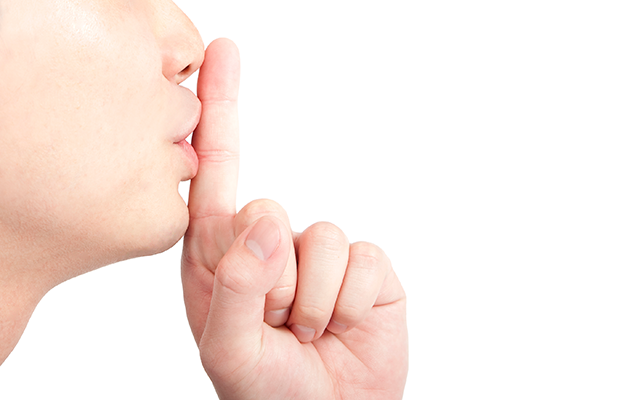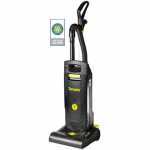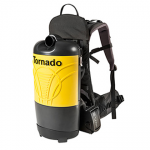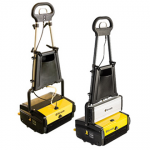Quiet Down: A Sound Approach to Reducing Noise Pollution
When you think about protecting the environment, sound is probably not the first thing that comes to mind. But noise pollution is a serious issue with genuine health, safety, and quality-of-life implications for everyone in a building.
Environmentally friendly facilities are a hot topic, and programs to reduce waste, cut down chemical use, and improve energy efficiency are on the rise. Cleaning companies and janitorial departments are at the heart of all of these initiatives, and they can be instrumental in the quest to eliminate environmental noise pollution as well.
The noise created by many different types of cleaning equipment has repercussions for cleaning staff and building occupants alike. Learning how this sound affects us and what can be done to reduce its effects can help create quieter, healthier environment for everyone.
When quiet really matters
Environmental noise can have adverse effects on health. According to the Center for Disease Control (CDC), 4 million people work around damaging noise every day, and 22 million workers are exposed to potentially damaging noise each year. The CDC estimates that 10 million people in the United States suffer from noise-related hearing loss.
A quick search of “noise and health” in the U.S. National Library of Medicine returns thousands of results about irreversible hearing loss, stress, sleep disturbances, fatigue, and problems with concentration, focus, and communication. These problems affect everyone.
In an office environment, unwanted noise can result in a loss of productivity. In healthcare environments, noise can negatively affect sick patients who need to sleep and doctors who need to concentrate and communicate to avoid mistakes. Cleaning employees, who are closest to many sources of noise, may suffer cumulative damage to their hearing. Ignoring noise pollution is a recipe for disaster.
Understanding decibel levels
Many people don’t realize how damaging “relatively quiet” noise can actually be. We know a jet engine or rock concert may be dangerously loud, but the hum of a vacuum cleaner is rarely considered a threat.
Sound intensity is measured in decibels, and you may be surprised to learn how few decibels it takes for a noise to become dangerous. Our ears are very delicate, with many tiny parts that can be harmed by exposure to too much sound, either all at once or over time.
Some noises, like the jet engine, have decibel levels high enough to cause pain and damage instantly, even in just a few seconds of exposure. Other noises, like the vacuum cleaner, have decibel levels that cause more subtle (but irreparable) damage with enough exposure.
Decibels are an exponential scale, not a unit of measurement like inches. This means that every 10 additional decibels actually represents a doubling of the noise. So 80 decibels is twice as loud as 70 decibels, and 90 decibels is four times as loud as 70 decibels. To help illustrate this, here are some examples of relative decibel levels:
- Airplane taking off from 25 yards away: 150 decibels
- Gunshot: 140 decibels
- Chainsaw: 120 decibels
- Rock concert: 110 decibels
- Jack hammer: 90 decibels
- Regular vacuum cleaner: 70 to 85 decibels
- Conversation: 50 decibels
- Whispering: 20 decibels
The National Institute for Occupational Safety and Health (NIOSH) has determined the threshold for hearing loss at 85 decibels over the course of a work day, but lower levels of noise have also been shown to cause physical stress reactions in humans. Regular exposure to noise levels of 65 decibels can trigger hormonal and autonomic nervous system responses that mimic anxiety and panic in the body, causing fatigue and raising the risk of health problems like heart disease.
What can you do to help?
It isn’t possible to cut out all noise and still keep your building clean, but janitorial services and maintenance departments can take steps to reduce the impact of noise pollution.
- Measure how loud your older equipment actually is. Affordable decibel meters are available online and can give you an accurate reading of noise levels.
- When buying new equipment, choose quieter units. CIMS – GB and Leed v4, the “green building” certification program from the U.S. Green Building Council, has set the noise threshold for cleaning equipment at at 70 decibels for vacuums, carpet extractors, and burnishers. There are quiet canister, backpack vacuums, and uprights on the market now which emit much lower decibels than similar products did in the past. The Carpet and Rug Institute (CRI) certifications rank cleaning performance for carpet care equipment and is a good place to start your search. Also, make sure to always check the manufacturer’s spec grids to determine a unit’s decibel level before buying.
- Move louder tasks to off hours. Day cleaning is a great choice for many facilities trying to save energy, but the tradeoff is noise for everyone in the building. You don’t need to move all cleaning operations to nighttime, but it may be possible to schedule louder jobs at the end of the work day, when occupants are leaving.
- Provide hearing protection to workers. The people most impacted by cleaning noise are the cleaners themselves. Even if your equipment operates at safe noise levels, constant exposure can cause fatigue and stress. Wearing a pair of ear defenders while working, at least for the loud parts of the job, can offer relief.
The productivity and health benefits of a quiet workplace are huge. The environmentally friendly impact of cutting out noise can also help you build a green niche to set you apart from the competition, if you run your own cleaning business. It can count towards achieving a green building certification, if you work in-house for a facility.
Most importantly, if you make noise pollution a priority in your cleaning business, you can make a big difference in the daily lives of your clients and your staff.
Whisper Quiet, Award Winning Commercial Cleaning Equipment
Increase Profits & Productivity with Your Equipment
Tornado Industries does more then sell equipment. We help solve facility cleaning challenges. Let’s talk about your cleaning challenges in person.




